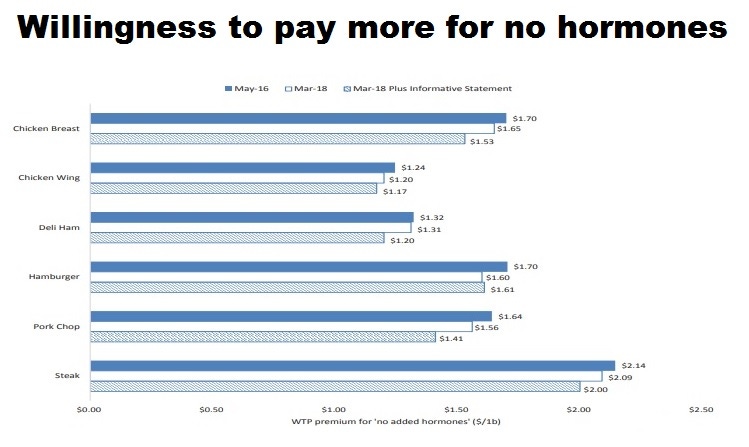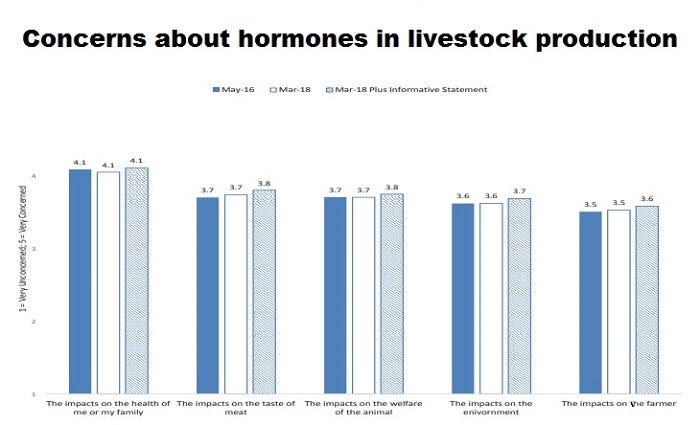
Consumers recently told researchers they would pay more for meat without hormones but didn't change much when told facts about hormone usage.
In a monthly survey by Oklahoma State University food scientists, survey participants were asked: “If you walked into your local grocery store and saw a package of meat with the label ‘no added hormones’, what is the highest premium you would be willing to pay for the following meats with this label over meats without this label?”
They said they were willing to pay (WTP) premiums between $1 and $2 for each cut of meat with the label "no added hormones." The response was similar to May 2016, when the same question was asked, but this time the WTP premiums were a little lower. These are listed in the first chart with this story.
The highest premium was for steak at $2.09, and the lowest premium was for chicken wings at $1.20.
Survey participants were then showed the statement: “Approximately 90% of all U.S. feedlot cattle are injected with hormones to improve growth rates and feed efficiency. Currently federal regulations do not allow the use of growth hormones in chicken or hog production.”
After seeing this above, participants WTP premiums decreased somewhat across all meat cuts, except for hamburger. The highest premium was for steak at $2.00 and the lowest premium was for chicken wings at $1.17.
For example, "no-hormone" steak WTP dropped from $2.14 to $2.00, "no-hormone" chicken breast WTP dropped from $1.70 to $1.53, and "no-hormone" pork chops WTP dropped from $1.64 to $1.41.
In a related question, consumers were asked how concerned or unconcerned they were about the effects of added hormones in livestock production on five different topics. These ranged from health of their families to effects on the environment. (See the second chart.)

The most common answer was “somewhat concerned” for each statement, except for “the impacts on the health of me or my family” where “very concerned” was the most common answer. Researchers noted fewer than 10% of participants answered “very unconcerned” for each of the statements provided.
Like the question about WTP premiums, this question about hormone concerns was repeated after providing participants with the same statement that “Approximately 90 percent of all U.S. feedlot cattle are injected with hormones to improve growth rates and feed efficiency. Currently federal regulations do not allow the use of growth hormones in chicken or hog production.”
The survey results after learning this information were surprisingly similar to those before the added statement.
You can read the survey here.
About the Author(s)
You May Also Like




